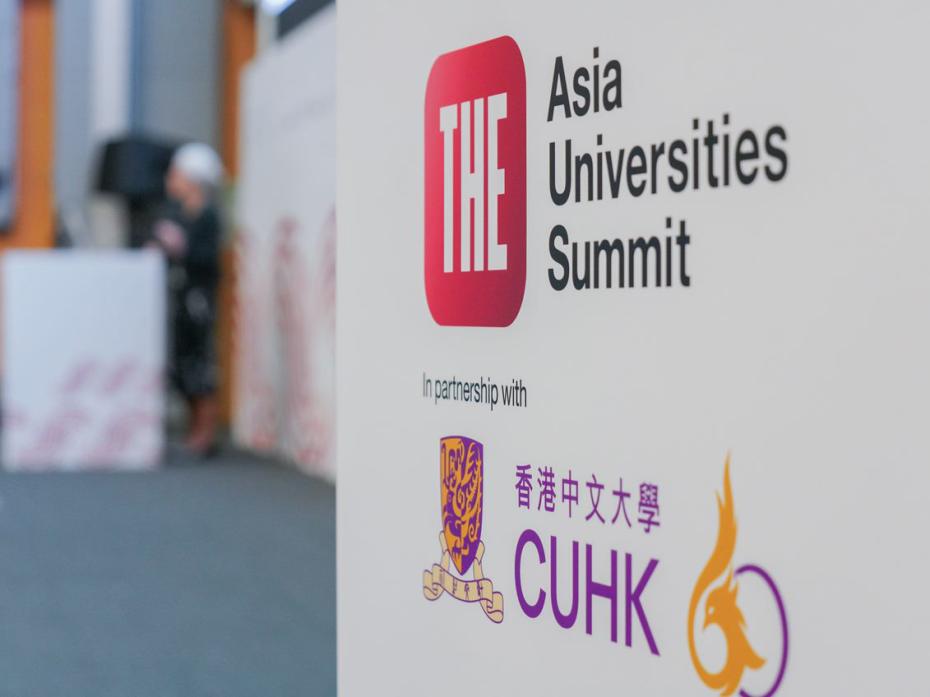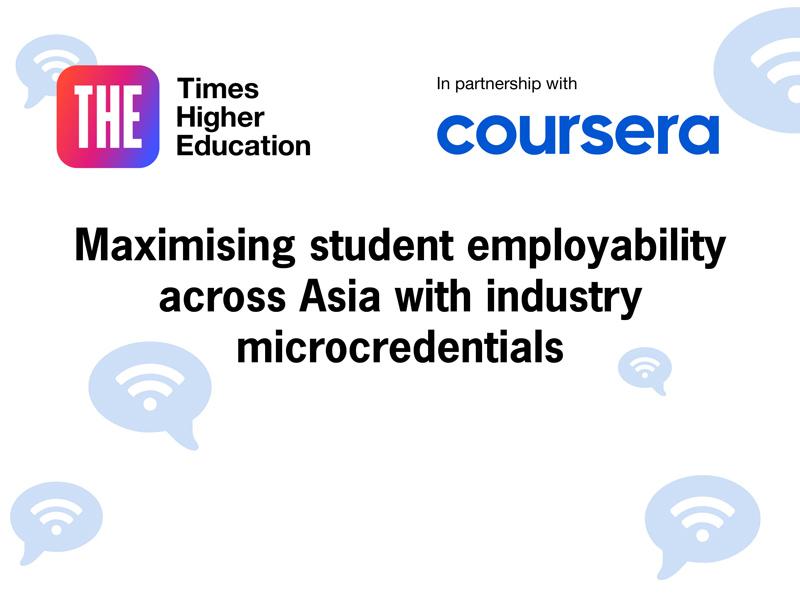
Enhancing microcredential offerings to achieve positive student outcomes in Asia


Anthology
Anthology provides data-informed education technology experiences to enable and empower the global education community
Universities in Asia are working towards offering microcredentials to widen access to education and better equip students with relevant future skills. Microcredentials are set to revolutionise the way people access learning by offering more flexible, non-linear pathways. Yet there is still a need to forge effective partnerships with industry and formulate quality assurance frameworks and policies to embed microcredentials across the education and industry ecosystems.
A round table discussion at the 2023 THE Asia Universities Summit, held in partnership with Anthology, brought together a panel of experts from academia and industry to focus on the diverse challenges facing universities across Asia as they embed microcredentials into curricula.
Undoubtedly, microcredentials play a crucial role in affording students the flexibility “to work and learn at the same time”, said Caroline Steel, principal strategic consultant at Anthology. They can also give learners the opportunity to improve their career prospects, try something new or start a new career.
The panel agreed that effective university-industry collaboration can better support university staff, students and professionals in reskilling and upskilling. Steel argued that “compelling discussion[s]” among senior leaders from universities and industry can not only forge strong partnerships but also maximise the value and potential of microcredentials across the economy.
Universities face the challenge of providing access to education for all students, especially those from underserved communities, said Maria Rosario Banzon, director of the Strategy and Quality Management Office at Ateneo de Manila University.
Widening access to new technologies also supports institutions in providing flexible learning by offering microcredentials supported by strong university-industry collaboration, Banzon said.
Waseda University in Japan forges strong collaborations with its industry partners and “always looks to partner with someone who finds value in us so that they come to us with interesting and worthwhile programmes. And they take care of the budget”, said Aiji Tanaka, president of Waseda University. In this way, students taking short courses “can take full advantage of [microcredentials] without paying extra fees”, he noted.
Tashmin Khamis, vice-provost of quality, teaching and learning at the Aga Khan University, highlighted that faculty may lack some of the skills to implement microcredentials into their courses. Therefore, universities have the chance to “educate the educators” with microcredentials, motivating them to take these short-form courses to improve the quality of their teaching and learning methods.
Regulatory authorities and quality frameworks can have a great impact on the uptake and mobility of credentials globally, regionally and across institutions. Additionally, businesses must continuously support their employees to reskill and upskill throughout their careers, said Amit Banerjee, pro chancellor at Siksha ‘O’ Anusandhan University.
Universities using strategic solutions offered by edtech firms can further improve their microcredential offerings. This not only enhances “the delivery and management of microcredentials” but also “creates a connected, intelligent and integrated experience for the learner”, concluded Michael Garner, head of solutions engineering (APAC) at Anthology.
The panel:
- Amit Banerjee, pro chancellor, Siksha 'O' Anusandhan University
- Maria Rosario Banzon, director of strategy and quality management, Ateneo de Manila University
- Mark Irvin Celis, vice-president of academic affairs, Lyceum of the Philippines University Cavite
- Madhu Chitkara, pro chancellor, Chitkara University
- Michael Garner, head of solutions engineering (APAC), Anthology
- Kohei Itoh, president, Keio University
- Tashmin Khamis, vice-provost of quality, teaching and learning, the Aga Khan University
- Mohammad Khan, executive director for strategic initiatives, Lahore University of Management Sciences
- Sabur Khan, founder and chair, Daffodil International University
- Alistair Lawrence, head of branded content, Times Higher Education (moderator)
- Sean McMinn, director, Hong Kong University of Science and Technology
- Minh Nguyen, director of the graduate department, Duy Tan University
- Loretta O'Donnell, vice-provost of academic affairs, Nazarbayev University
- Adriana Rojas, senior director of network and student programmes, Association of Pacific Rim Universities
- Caroline Steel, principal strategic consultant, Anthology
- Aiji Tanaka, president, Waseda University
- Zhu Yi Zhun, associate vice-president, Macau University of Science and Technology
about Anthology
